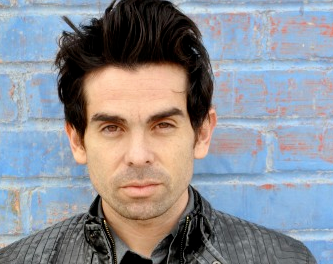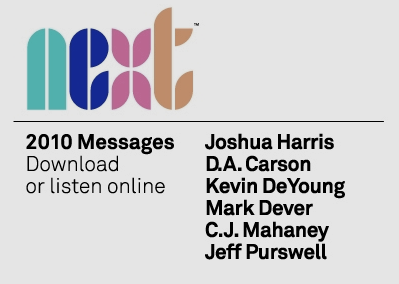So the Super Bowl is this weekend, and for some reason or another my mind has been thinking about living in a way sort of analogous to this great American game. That is, there are many word pictures that can describe the Church- "Christians," "the Body," "A fellowship of believers," umm "a football team..." I like this one a lot right now. Let me explain.
No one likes to listen to a coach call the shots who himself has never played the game. And we definitely don’t like one who only shows up for practice occasionally to check up on the players briefly and then makes an appearance only for the games. What player would want such a coach? The only thing the players might want of him would be that he get fired. Such a coach is clearly disinterested and totally out of his element. It certainly doesn’t help to plan plays for a team or offer players advice if you’re not even a real part of the game.
Yet it’s not this coach alone who gives most unhelpful advice. When we watch a player from the sidelines (or more realistically, from a Tube), we’re still pretty out of touch with reality. Ever find it funny how we hoot and holler over games, saying stuff like, “Why didn’t he throw the ball,” or, “What in God’s green world is he is doing?” and then go on to give our own opinions of what we think should happen? And when one of “our players” screws up big, we’ll throw our hands up and exclaim in perfectly understandable frustration, “Take him out of the game- quickly, before he ruins the whole thing.” We give our own opinions all the time as spectators, usually starting with, “Why didn’t he…” and ending with either a shout or a deeply exasperated sigh. But here’s the thing, nobody at a Super Bowl party genuinely believes that what their saying makes any difference in the game. Not even the die-hard fan is so deceived as to think that his opinions really change anything (even if he may think they should). Yea, we’re frustrated when our team is shooting themselves in the foot; and yea, we may show signs of depression when our team blows it once again, but, even if our team may be in the Super Bowl (don’t worry I’m a Vikings fan) we’re still just vicarious spectators. We’re just fans in the stages of our couches offering our earnest protests and our thoroughly convinced coaching tips to but deaf television screens and consoling wives who silently wish the cable would suddenly go out.
No, it’s the coaches on the sidelines and the players on the field who call the shots. Though we may call them “our team,” they’re really not. We’re not there, we’re not with them; we’re not actually on the team. And since we’re not, our opinions really don’t have much value. And certainly if we had the chance to talk with “our teams’” coach we wouldn’t presume to give him advice on how he should deal with his team! When we meet our favorite players whom we have rooted for and appropriately idolized, far from giving our say on how their doing and how they can improve, we pull out a paper and a magic marker and ask for their autograph; and we walk away beaming with silly grins topping off our fully decked out “team” apparel while proudly looking over a name that no one but God Himself could read.
Yet just as hyped up as “the boys” get over a football game (let alone the Super Bowl) and just as much of a ruckus they raise depending on the state of “their team,” it seems us Christians get equally neurotic over people’s problems, or even worse, problem people. We love to sneak in our comments and give our own takes on people’s problems. We’ll listen to someone talk about someone else, and then, after remaining very attentive and holding a look of deep concern for some time (and perhaps even stroking our chins), we share our profound insight as if what we’re sharing should cost money to hear. Or even worse, we give our read of someone else and their problems to someone else. We say, “You know, this is what I think needs to be said to so and so about such and such...” Umm, okay? What are we saying? What are we doing? Well, exactly, we’re not “doing” anything really- we’re just talking. And when we do “do,” we’re just talking. Talk, talk talk.
For some, absolutely ridiculous reason or other we think we’re accomplishing something by simply talking, by conveying our own very important interpretations as vicarious spectators. This is usually how it goes: We’ll huddle together and create a play for a particular person’s problem, then after yelling break, we sprint off the field and begin enthusiastically cheering the person on who is now left with nothing but himself and this giant team of problems before him. And then we’ll shout to him asking him if there’s anything we can do to help; and when he stares at us dumbfounded still trying to understand what the heck we’re doing, we look at each other and wonder why he’s not doing anything. Then we watch him get smothered by some 500 lb. “problem.” So we do it again. We call the huddle and then we break, and maybe after spending a brief moment or two doing some sort of something, we slowly meander off the field and join our frustrated friends on the sidelines. After awhile, we become so good at doing this, we begin abandoning having a huddle with the person to devise a play for his problems altogether, and instead we start having our own huddle off the field trying to figure out exactly why this person doesn’t seem to be improving at all. We’re all coaches after all right? And so we take ourselves out of the game entirely, thinking we’re still in it because we sometimes call to the lonely person on the field telling him what we think he should do and asking him how we can help. When we finally do get back in the huddle with the person we are simply floored with frustration. None of our plays seem to be working! Worse yet, none of our huddles on the sidelines are paying off! “We’re his teammates, why isn’t he listening to us”, we may ask. “He’s on ‘our team,’ why isn’t he running the play? He’s ‘our player’ why does he keep screwing up?” Thus we have come only to comment on the situation from afar almost as vicariously as we do the Super Bowl.
It is only when we get in the game and on the field, and start running the plays with people against their problems that we will see the improvement we’re looking for. Only when the “player” becomes a “teammate” (fighting for the big W together) can we offer helpful suggestions of any significance. Unless we’re on the field sweating and getting stinky alongside each other our insight gets lots in a sea of unfamiliarity. We may claim we can relate, but that’s not good enough for the player who doesn’t see your face on the field and in the same game as he is. Our criticisms will typically reveal more about our ignorance than the play and the players when we’re no where to be seen in their day to day grind. To change the illustration, we’ll be like the delusional parents who tell their kids that what their going through in high school is exactly the same as when they attended theirs some 35 years ago. No kid likes to hear that ancient caveat. No, if we’re not in the game and on the team (even if that means sitting on the bench sometimes) our criticisms will be wildly out of focus and almost humorously unhelpful.
Take a friendly game of touch football for instance. Ever have that one person who joins the huddle way later than everyone else, huffing and puffing, and while the QB is already giving the play jumps in and confidently proclaims, “Hey guys, this is what I think we should do”? Unless he’s an amazingly talented and highly respected athlete, and unless he has some good reason for getting to the huddle so late, he’s met with disinterested faces at best and perhaps a friend telling him to appropriately shut up at worst. And maybe if he does this quite often he’s ignored altogether.
Now imagine if this was after his very first play and he wasn’t really even on your “team” in the first place, but some stranger who is subbing in for someone. We might whisper to our buddy something to the effect of, “Who does this guy think he is?” Or we may honestly want to know who he is since we’ve never even seen him before. No, this guy should get in the game, play a couple plays (or games even), take a couple blows, make a couple blocks, before he presume he has anything helpful to offer in the huddle.
But how often do we try to solve other people’s problems (let alone our own) by jumping in with our own wild interpretations when we barely even know the people, not to mention, hang out with them ever? They are simply “players” in the game we’re watching, not teammates we’ve gotten alongside of and played a bit in the mud with. Perhaps we do know them, and maybe we’ve known them for awhile, but that doesn’t mean that we know them any better than our favorite “player” in the Super Bowl. He still may not be our actual teammate, just a “player” we like to comment on. No, he’s definitely not our teammate if we’re not playing with him, at least not any more than “our team” is really our team. We have to get our heads out of the clouds and realize that games aren’t played vicariously. And neither should our advice of them be so either. We have to come back down to earth and wipe away our vague idealism and get rid of any arrogant presumption that we somehow know what we’re talking about and can thus organize the plan of attack and then take our place on the sidelines (or on the couch). We have to intentionally practice tuning our ears and orienting our eyes not to our own inner sense of what we feel should happen, but outward to what’s going on between the huddles. We must tackle the team of people’s problems after we say break (and hike I suppose), not the bench on the sidelines. If a person is our teammate, we play with them; we don’t merely dress up crazy and root for them.
It shouldn’t be too much to ask to simply hang out with people who are struggling, or to get genuinely involved with their lives. It’s no high calling. It doesn’t take tremendous skill or a certain degree of “coolness.” All it takes is for us to stop trying to call the play (if even we do that) and instead take a position. It isn’t that tough to stop trying to direct the roller coaster and simply enjoy (brace yourself for) the ride. God knows how steep the drop is and how tight the turn. Does He not have it all set up perfectly already? Now let’s not be passive players here; let’s anticipate the twists and prepare for the drops, leaning in where necessary and shrieking when our hearts seem to have made their way into our throats, but let us also remember we’re not the judges of this jamboree, neither are we the gurus of this game. We’re just people called to a position on the field. But if we’re ever going to help anyone, we must first get in the game.
skip to main |
skip to sidebar
recent comments
Categories
- A.W. Pink (2)
- accountability (6)
- Albert Mohler (4)
- Alistair Begg (1)
- Amillennialism (1)
- amusement (1)
- apostasy (1)
- Arminianism (2)
- Atonement (2)
- Attributes of God (2)
- authorial intent (1)
- baptism (1)
- being called (5)
- blessings (4)
- boldness (2)
- Books (3)
- branch (1)
- c.j. mahaney (5)
- Calvinism (6)
- Chelsea Kauflin (3)
- Christ (12)
- Christ our treasure (3)
- Christ's love (2)
- Christian Education (1)
- Christian Hedonism (1)
- christlikeness (5)
- Christmas (4)
- church (10)
- Church discipline (1)
- Church History (2)
- Church Merge (1)
- Church Planting (2)
- comfort (1)
- communion (1)
- Condemnation (1)
- Conscience (1)
- contemplate (1)
- Conversation (1)
- Creation (1)
- cross (16)
- D.A. Carson (3)
- Death (2)
- discernment (4)
- Discipleship (1)
- Discipline (1)
- Dispensational Premillennialism (1)
- Doctrine (1)
- Doctrines of Grace (13)
- doubt (1)
- douglas moo (1)
- Dr. Michael Horton (1)
- drinking (1)
- Effectual Call (1)
- Election (5)
- emerging church (1)
- encouragement (11)
- Entertainment (1)
- evangelism (23)
- Exegetical Fallacies (1)
- Facebook Complaining (1)
- faith (9)
- Faithfulness (1)
- Fathers (1)
- fear (5)
- Fear of God (1)
- fellowship (10)
- figs (1)
- focus (4)
- forgiveness (5)
- Francis Chan (1)
- Free Stuff (2)
- free will (1)
- fruit (4)
- full-time ministry (7)
- giving (3)
- God's glory (13)
- God's goodness (3)
- God's grace (21)
- God's Love (15)
- God's name (8)
- God's power (13)
- God's Sovereignty (1)
- God's will (8)
- God's Wisdom (2)
- God's word (27)
- Good Friday (2)
- gospel (36)
- Gospels (1)
- grace discipline pride selfishness (1)
- Great High Priest (1)
- Heaven (1)
- Hell (1)
- heresy (1)
- Historic Premillenialism (1)
- history (1)
- Holy Spirit (5)
- homosexuality (1)
- Honoring God (5)
- honoring your parents (1)
- humility (14)
- Humor (3)
- hymns (3)
- hypocrisy (1)
- idolatry (1)
- Imputation (2)
- Incarnation (1)
- integrity (2)
- intercession (1)
- Interpretation (1)
- interview (2)
- Irresistable Grace (5)
- Isaiah (1)
- Jesus (10)
- jim elliot (1)
- Joey Mejia (1)
- John Bunyan (1)
- John Calvin (1)
- John MacArthur (2)
- John Owen (4)
- John Piper (9)
- John Stott (1)
- Joseph (1)
- Joshua Ritchie (99)
- Joy (2)
- justification (1)
- kingship (1)
- Law (3)
- Lawkeeping (1)
- ligon duncan (2)
- Lordship (2)
- love (22)
- Loving God (2)
- mark dever (6)
- Mark Driscoll (1)
- marriage (4)
- Martin Luther (2)
- Matthew (7)
- mercy (5)
- Metanarrative (1)
- Ministry (6)
- missions (8)
- Money (1)
- Mormons (1)
- Mothers (1)
- Music (1)
- N.T. Wright (1)
- Narrative Theology (1)
- New Exodus Theology (1)
- New Perspective On Paul (1)
- Noah (1)
- Obedience (22)
- open theism (1)
- Parables (1)
- Parenting (4)
- passion (3)
- Pastors (2)
- Paul (1)
- peer pressure (5)
- persecution (8)
- perserverance (2)
- Pharisees (1)
- phil johnson (1)
- Possessions (1)
- Postmillennialism (1)
- poverty (1)
- praise (9)
- prayer (32)
- Preaching (7)
- preciousness of Christ (6)
- pride (2)
- priorities (7)
- promises (3)
- Prosperity (1)
- Psalm 115 (1)
- Psalm 73 (1)
- puritans (3)
- Purpose Driven Life (1)
- question (1)
- questions (3)
- Quote of the Day (4)
- Quote of the Week (4)
- radio (1)
- Reconciliation (2)
- redemption (1)
- Reformation (2)
- Reformed Theology (5)
- regeneration (4)
- Regulative principle (1)
- relationships (1)
- repentence (6)
- requests (7)
- responsibility (2)
- Resurrection (1)
- righteousness (5)
- risk (1)
- Rob Bell (1)
- Romans (3)
- Sacred Sandwich (1)
- sacrifice (10)
- salvation (13)
- sanctification (33)
- scripture (13)
- semi-pelagianism (1)
- Sermons (7)
- serving (4)
- Sex (1)
- Shai Linne (1)
- sin (21)
- Sinclair Ferguson (1)
- Solitariness (1)
- Songs (5)
- Sovereign Grace (1)
- Sovereign Grace Ministries (3)
- sovereignty (18)
- Spanking (1)
- spiritual warfare (4)
- sports (1)
- Sproul (2)
- Spurgeon (1)
- St. Augustine (1)
- suffering (3)
- Take No Glory (1)
- talia (38)
- Teaching (3)
- temptations (2)
- thanksgiving (5)
- The Cambridge Declaration (1)
- The Five Solas (8)
- The Golden Rule (1)
- The Natural Man (1)
- theology (3)
- think (1)
- Todd Friel (1)
- trial (3)
- trusting God (12)
- truth (7)
- Tulip (1)
- Valley of Vision (1)
- victory (1)
- vine (1)
- weddings (1)
- William Wilberforce (1)
- Witnessing (2)
- Word Of The Week (3)
- worship (23)
- worship praise (2)
- Wrath (1)
Blog Archive
-
▼
2009
(106)
-
▼
January
(14)
- Get in the Game: A Call to Get Off the Couch As Vi...
- The Wrath of God
- Jesus, Keep Me Near The Cross
- Be Careful of Your Language
- Preaching The Gospel To Yourself
- Christ-filled Preaching
- Christ-less Preaching
- Prayer
- Moved by the --- [Transmission Interrupted]
- Heart Cry!
- Kammie Anten
- Brittany Kauflin
- The Gospel, The Atonement and New Exodus Theology
- Hope?
-
▼
January
(14)
| Blog: |
| TALIA |
Topics: |
| gospel, theology, encouragement |
















4 comments:
Your analogy is perplexingly penetrating and well though out. Good insights and exhortation.
Great stuff... so might as well get started.. Grace Church is waiting for you.
Kurt Gebhards whole message on sunday was 1 Corinthians 1 and 2. The centrality of the gospel!
I enjoyed reading that, Brent.
What happens when you're the one on the field? (Because in this game we're all going to be at some point .. no bench warmers in this one). How would you respond to the "spectators"? ... especially when you aren't sure what their motives behind the "hollering" ...
"But how often do we try to solve other people’s problems (let alone our own) by jumping in with our own wild interpretations when we barely even know the people, not to mention, hang out with them ever?"
This is put so right!! And especially this,
"We say, “You know, this is what I think needs to be said to so and so about such and such...” Umm, okay? What are we saying? What are we doing? Well, exactly, we’re not “doing” anything really- we’re just talking. And when we do “do,” we’re just talking. Talk, talk talk.
Thanking for putting this forth....Very encouraged and definitely convincted.....
Have been reading TALIA for a month..and I must say, all you TALIANS do a great job!! And I always look forward to read the posts DAILY!!
Naiesha...
Post a Comment